
Playa Porto Mari: A Caribbean Gem in Curacao
Playa Porto Mari is a picturesque beach located on the northwest coast of Curacao. Known for its white sandy shores and crystal-clear turquoise waters, it offers a perfect blend of relaxation and adventure. The beach is famous for its unique double reef, which provides an excellent opportunity for snorkeling and diving enthusiasts to explore the vibrant underwater life. In addition to its natural beauty, Playa Porto Mari is equipped with a range of amenities to ensure a comfortable visit. You can find sunbeds and umbrellas for rent, a dive shop for equipment and guided tours, and a beachside bar and restaurant serving delicious local cuisine and refreshing drinks. The beach is also committed to environmental sustainability. It participates in reef restoration projects and promotes eco-friendly practices among visitors. This makes Playa Porto Mari not just a beautiful place to visit, but also a destination that cares for its natural surroundings. Whether you are looking to soak up the sun, explore the underwater world, or simply enjoy the serene beauty of the Caribbean, Playa Porto Mari is a must-visit destination on your trip to Curacao.
Local tips in Playa Porto Mari
- Arrive early to secure a good spot on the beach, especially during weekends and holidays.
- Don't forget your snorkeling gear to explore the double reef; rentals are also available at the dive shop.
- Bring cash as some vendors and the entrance fee may not accept credit cards.
- Try the local dishes at the beachside restaurant for an authentic taste of Curacao.
- Respect the beach's eco-friendly rules, such as disposing of trash properly and avoiding touching the coral reefs.
Playa Porto Mari: A Caribbean Gem in Curacao
Playa Porto Mari is a picturesque beach located on the northwest coast of Curacao. Known for its white sandy shores and crystal-clear turquoise waters, it offers a perfect blend of relaxation and adventure. The beach is famous for its unique double reef, which provides an excellent opportunity for snorkeling and diving enthusiasts to explore the vibrant underwater life. In addition to its natural beauty, Playa Porto Mari is equipped with a range of amenities to ensure a comfortable visit. You can find sunbeds and umbrellas for rent, a dive shop for equipment and guided tours, and a beachside bar and restaurant serving delicious local cuisine and refreshing drinks. The beach is also committed to environmental sustainability. It participates in reef restoration projects and promotes eco-friendly practices among visitors. This makes Playa Porto Mari not just a beautiful place to visit, but also a destination that cares for its natural surroundings. Whether you are looking to soak up the sun, explore the underwater world, or simply enjoy the serene beauty of the Caribbean, Playa Porto Mari is a must-visit destination on your trip to Curacao.
When is the best time to go to Playa Porto Mari?
Iconic landmarks you can’t miss
Queen Emma Bridge
Explore the iconic Queen Emma Bridge in Willemstad, a vibrant pedestrian bridge connecting two historic districts with stunning views and lively atmosphere.
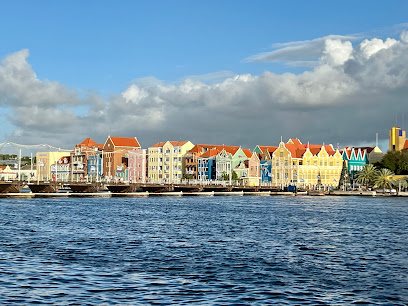
Mambo Beach
Experience the vibrant culture and stunning natural beauty of Mambo Beach in Curaçao, a perfect destination for relaxation and adventure.
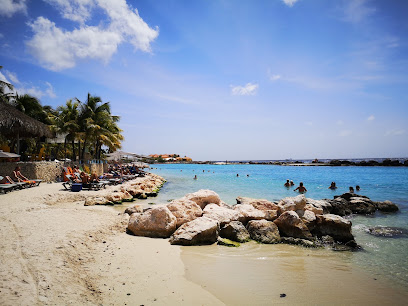
Renaissance Wind Creek Curacao Resort
Experience luxury and history at this stylish Willemstad resort, featuring a private beach, casino, and easy access to Curaçao's attractions.

Curaçao Cruise Terminal
Discover the stunning Curaçao Cruise Terminal, your gateway to the vibrant culture, history, and natural beauty of this Caribbean paradise.
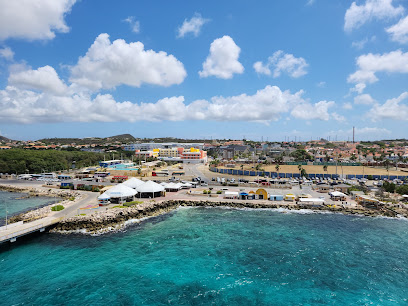
Curaçao Sea Aquarium
Explore Curaçao's underwater world at this unique aquarium with its open-water system and interactive marine encounters.
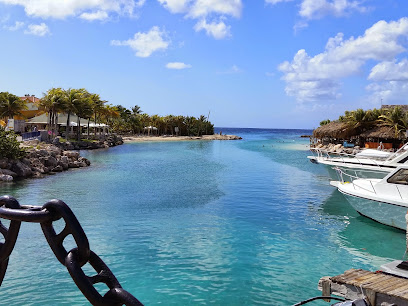
Kokomo Beach
Discover the serene beauty of Kokomo Beach in Willemstad, Curaçao - your ultimate tropical getaway with stunning views, water sports, and delicious local cuisine.
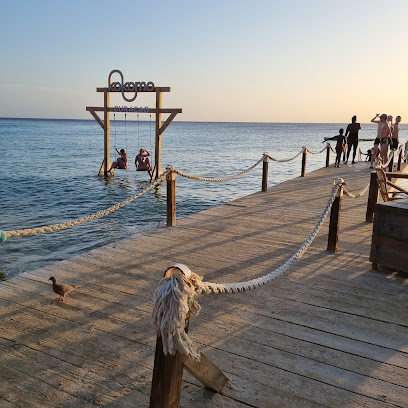
Grote Knip
Experience the breathtaking beauty of Grote Knip, one of Curaçao's most stunning beaches with pristine sands and clear turquoise waters.
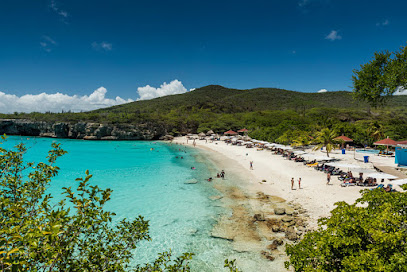
Hato Caves
Explore Hato Caves in Curaçao for an unforgettable adventure through stunning limestone formations and ancient petroglyphs.
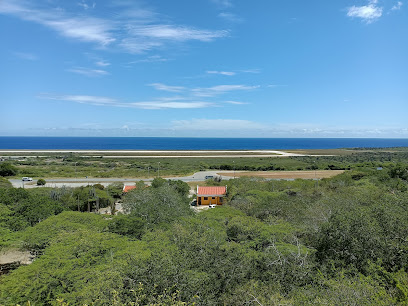
Playa Grandi
Experience the idyllic beauty of Playa Grandi, Curaçao's stunning beach known for snorkeling, vibrant marine life, and serene relaxation.
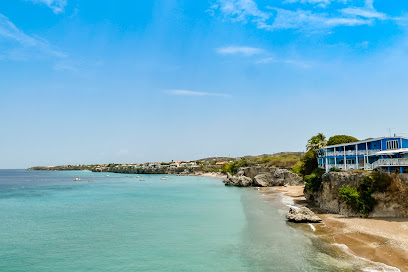
Old Market
Experience Curaçao's vibrant culture & cuisine at Willemstad's Old Market: a historic hub offering authentic flavors and a lively atmosphere.
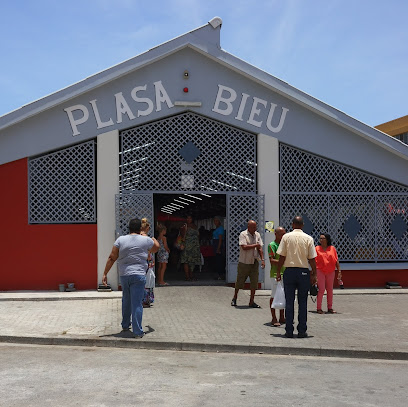
Flamingos
Experience the tranquility of Flamingos in Curaçao, a birdwatching haven showcasing stunning flamingos and rich biodiversity in a serene natural setting.
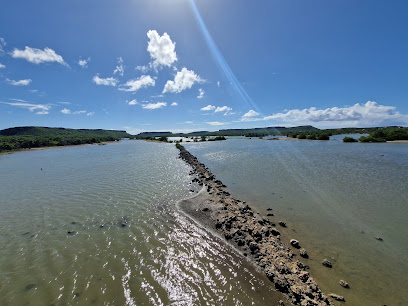
Shete Boka National Park
Explore the breathtaking landscapes and unique wildlife of Shete Boka National Park in Curaçao, a true paradise for nature lovers and adventure seekers.
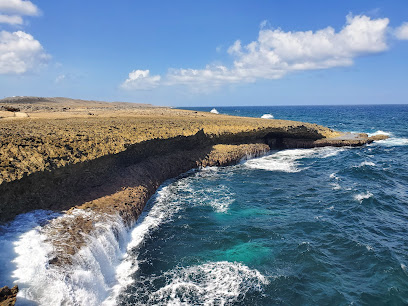
Kleine Knip
Discover the serene beauty of Kleine Knip, a picturesque beach paradise in Curaçao, perfect for relaxation, snorkeling, and breathtaking views.
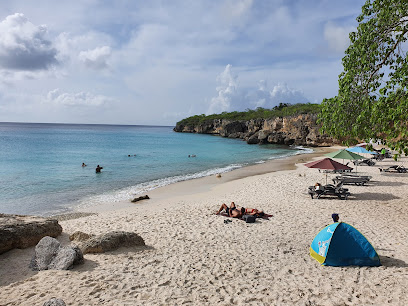
Brión Square
Explore Brión Square in Willemstad, Curaçao, where vibrant culture meets stunning scenery in the heart of the island.
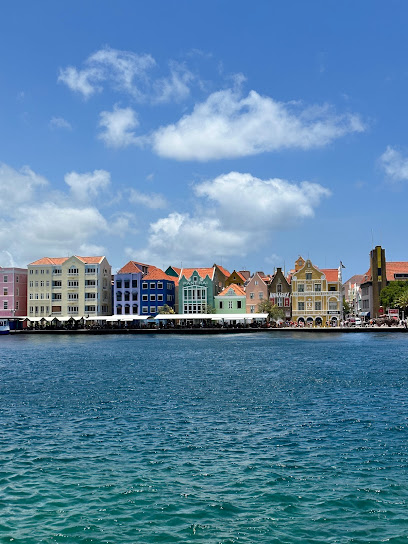
Museum Kura Hulanda
Discover the profound history of the Afro-Caribbean community at Museum Kura Hulanda, a cultural gem in the heart of Willemstad, Curaçao.
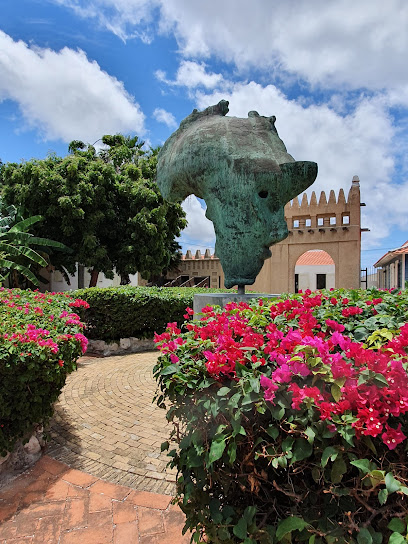
Unmissable attractions to see
Curaçao Sea Aquarium
Discover the wonders of the Caribbean Sea at Curaçao Sea Aquarium, where interactive experiences, diverse marine life, and a commitment to conservation create unforgettable memories.
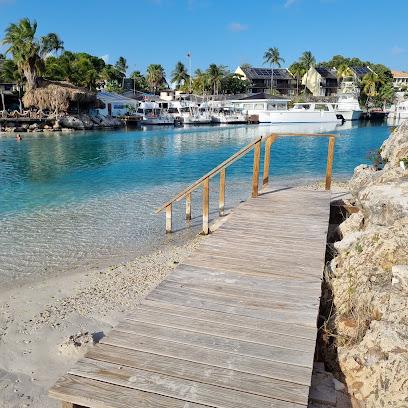
Playa Porto Marie
Experience the pristine beauty of Playa Porto Marie, a hidden gem in Curaçao, perfect for sunbathing, snorkeling, and unforgettable sunsets.
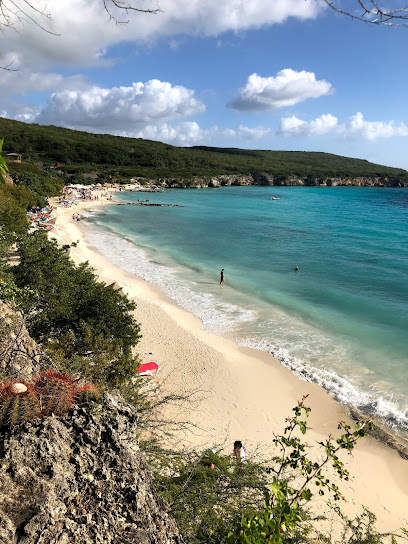
Marie Pampoen Beach
Discover Marie Pampoen Beach in Curaçao: a serene escape with vibrant marine life, calm waters, and local charm, perfect for relaxation and adventure in a picturesque Caribbean setting.
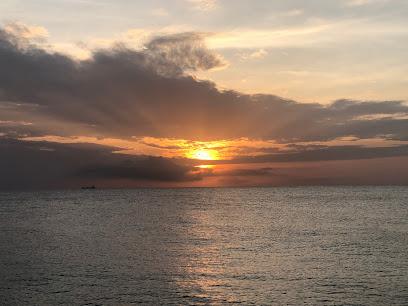
Den Paradera Herb Garden Curaçao by Dinah Veeris
Discover Curaçao's hidden gem: Den Paradera Herb Garden, where traditional herbal remedies and cultural heritage intertwine in a serene botanical sanctuary. Explore the healing power of nature.
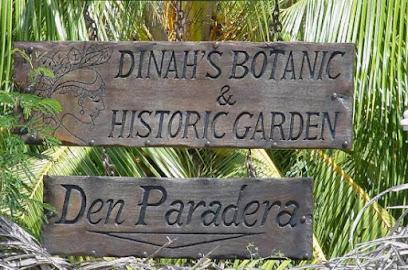
Tugboat Bar
Discover Curaçao's underwater treasure at Tugboat Bar, where Caribbean charm meets vibrant marine life on the scenic Caracasbaai Peninsula, offering a unique snorkeling and relaxation experience.
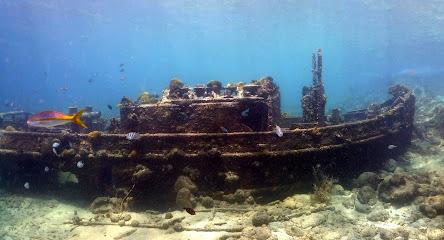
Playa Kanoa
Explore the serene beauty of Playa Kanoa in Curaçao, a tropical paradise perfect for relaxation, adventure, and unforgettable memories.
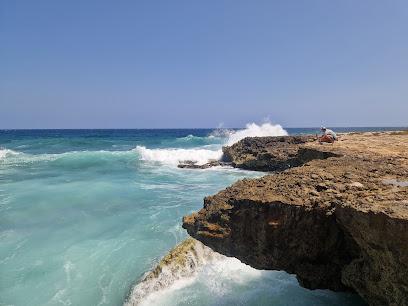
Street Art Skalo
Discover the vibrant Street Art Skalo in Willemstad, Curaçao, an open-air museum where colorful murals tell stories of local culture, history, and community spirit in a revitalized historic district.
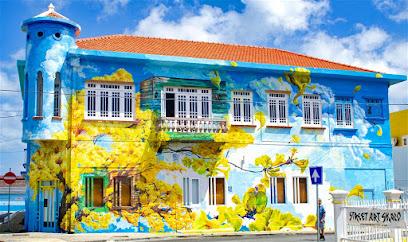
Landhuis Jan Kock
Explore Landhuis Jan Kok in Curaçao, a historic plantation house turned vibrant art gallery, offering stunning views and a glimpse into the island's rich cultural heritage.
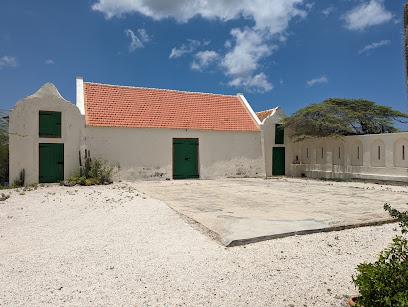
Porto marie wandel- en Bike trail
Discover the Porto Marie Hiking and Biking Trail, where adventure meets stunning natural beauty in Sint Willibrordus, Curaçao.
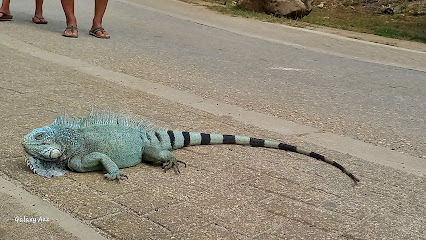
Gouverneur van Slobbeweg
Explore Willemstad, Curaçao: A UNESCO World Heritage city with candy-colored architecture, vibrant culture, and a captivating blend of Dutch and Caribbean charm.
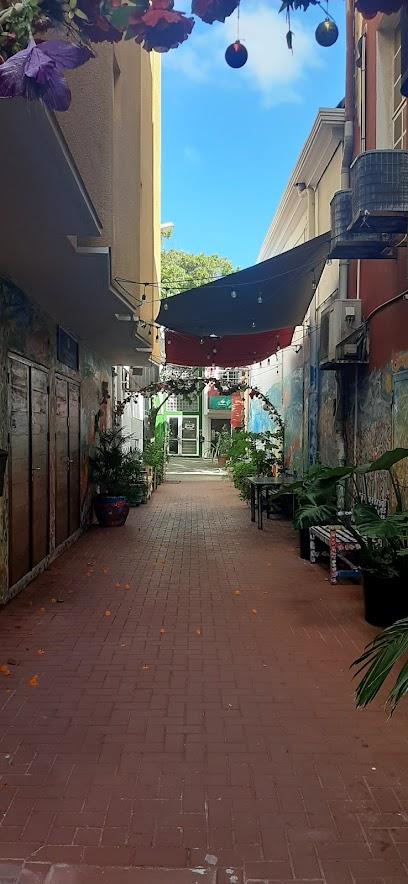
Essential places to dine
Zanzibar Beach & Restaurant
Experience exquisite dining at Zanzibar Beach & Restaurant with breathtaking ocean views and a vibrant Caribbean atmosphere in Curaçao.
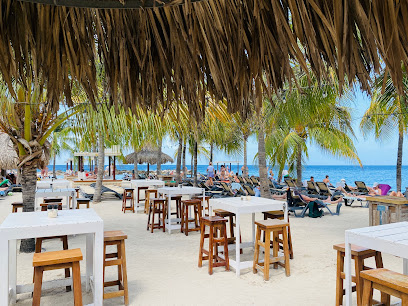
De Visserij piscadera
Experience the best seafood dining at De Visserij in Willemstad – where fresh catches meet Caribbean flavors.
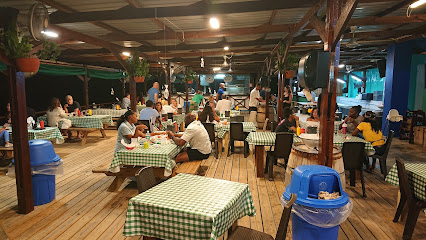
Pirate Bay Curaçao Beach Club and Restaurant
Experience exquisite dining with stunning ocean views at Pirate Bay Curaçao Beach Club and Restaurant—a must-visit gem in Willemstad.
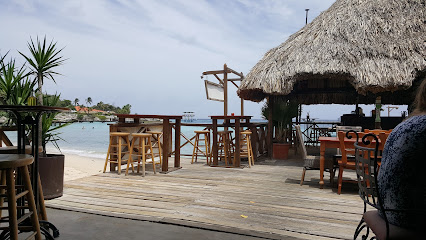
Restaurant & Café Gouverneur De Rouville
Experience the best of Curaçao’s culinary scene at Restaurant & Café Gouverneur De Rouville with breathtaking views and delectable dishes.
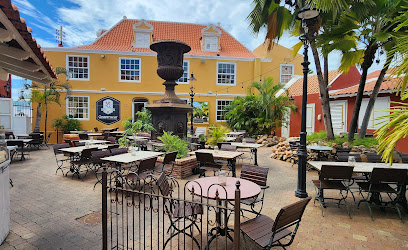
Karakter Beach - Lounge - Restaurant
Experience culinary delights at Karakter Beach in Curaçao—where stunning ocean views meet exquisite Caribbean flavors.
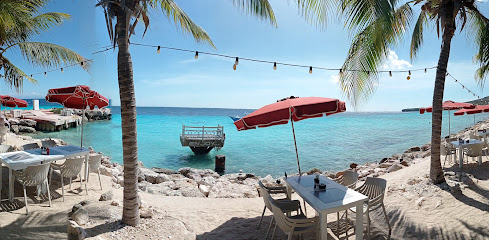
Saint Tropez Ocean Club
Discover culinary delights at Saint Tropez Ocean Club in Curaçao – where exquisite flavors meet breathtaking ocean views.
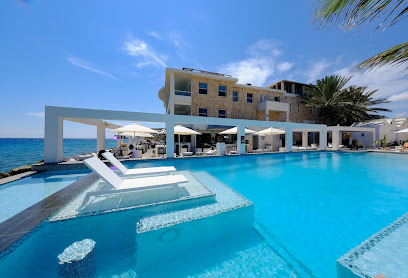
Eetcafé De Buurvrouw
Discover the vibrant flavors of Curaçao at Eetcafé De Buurvrouw, where delicious local cuisine meets inviting Caribbean hospitality.
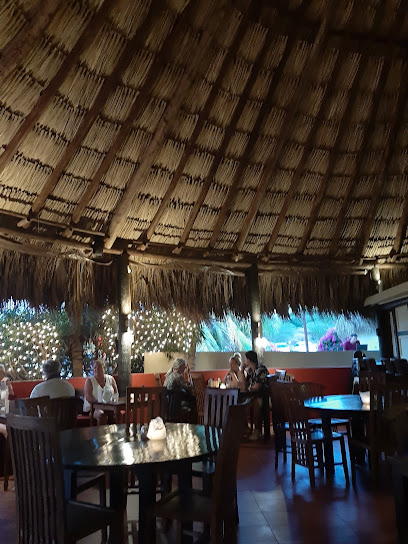
Restaurant Playa Forti
Experience authentic Caribbean cuisine with breathtaking ocean views at Restaurant Playa Forti in Sabana Westpunt, Curaçao.
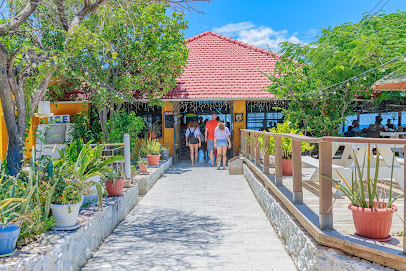
Bali Restaurant Grote Berg
Experience authentic Curaçaoan cuisine at Bali Restaurant Grote Berg – where every dish tells a story of flavor.
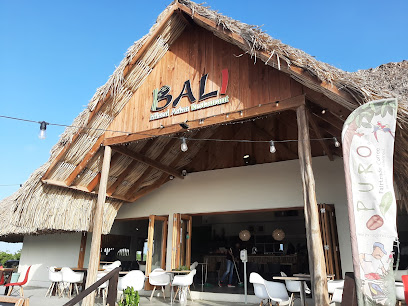
MOOD Beach Curacao
Savor exquisite dishes at MOOD Beach Curacao while enjoying breathtaking ocean views and a vibrant beach atmosphere.
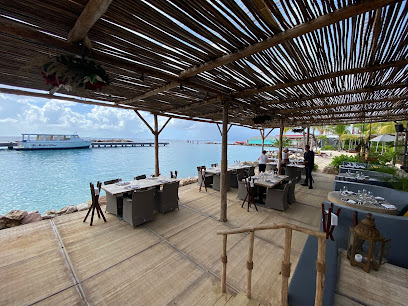
Shelterrock Paradise
Discover Shelterrock Paradise in Jan Donker: where delightful cuisine meets captivating live music in an unforgettable Caribbean setting.
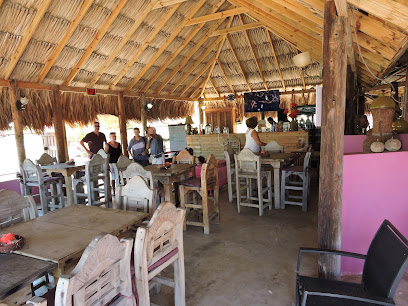
The Niffo Huts
Discover the vibrant flavors of Curaçao at The Niffo Huts – where culinary delight meets island charm.
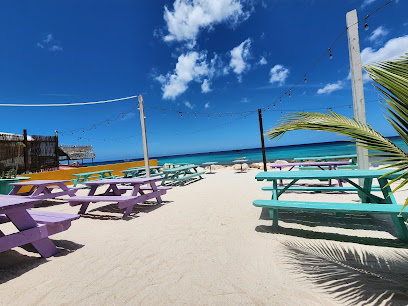
The Green House
Experience the vibrant flavors of Curaçao at The Green House - a culinary gem offering fresh local and international cuisine in an inviting setting.
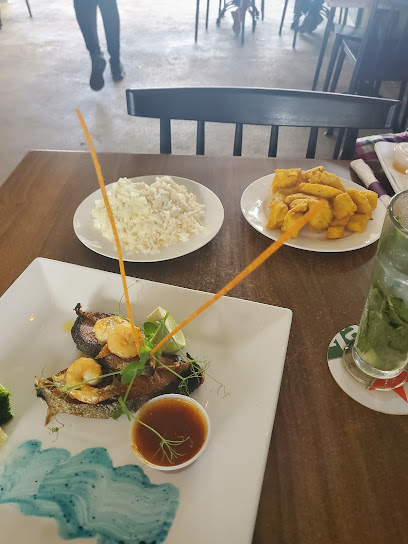
Porto Curaçao Restaurant
Experience the vibrant culinary scene at Porto Curaçao Restaurant in Willemstad—where local flavors meet international flair.
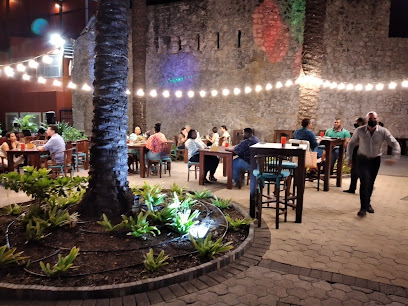
Landhuis Daniel restaurant
Discover the hidden culinary gem of Curaçao at Landhuis Daniel, where local flavors meet exquisite dining in a picturesque setting.
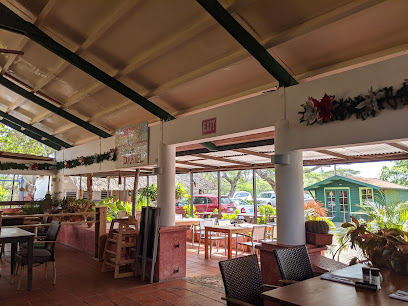
Markets, malls and hidden boutiques
Sambil Curacao
Discover Sambil Curacao, the vibrant shopping mall in Willemstad, offering a unique blend of retail, dining, and entertainment for all ages.
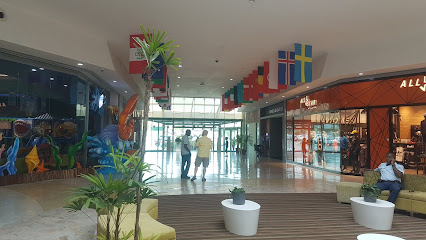
Playa Porto Mari
Discover the beauty of Playa Porto Mari, a serene beach in Curaçao perfect for relaxation, snorkeling, and enjoying local cuisine with stunning ocean views.
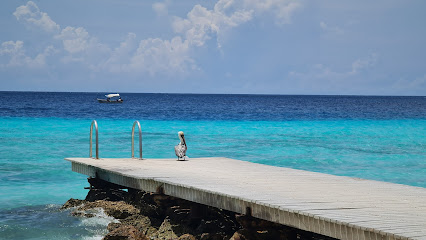
La Curacao
Discover the vibrant shopping experience at La Curacao in Willemstad, offering a wide range of products from electronics to local souvenirs.
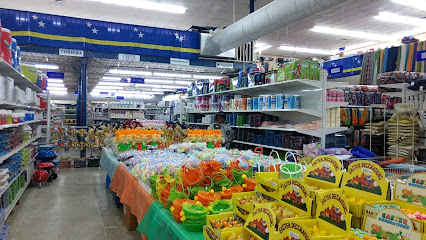
B Diving & Watersports
Experience the Ultimate Water Adventure at B Diving & Watersports on the Gorgeous Cas Abao Beach in Curaçao.
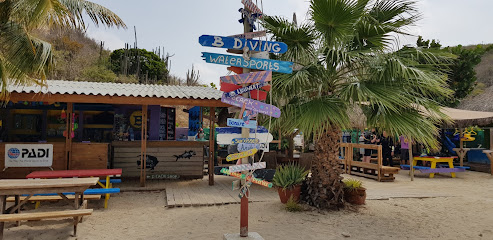
PortoMari Sports
Explore the vibrant marine life and stunning coral reefs at PortoMari Sports, Curaçao's premier diving center for adventurers of all skill levels.
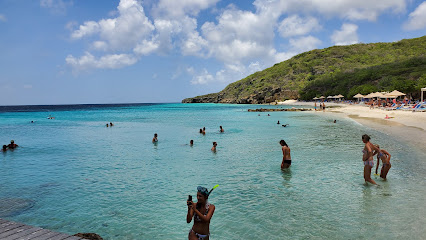
Bread and more
Discover the charm of Bread and More, a bakery in Curaçao known for its delicious pastries and warm atmosphere, perfect for a delightful break.
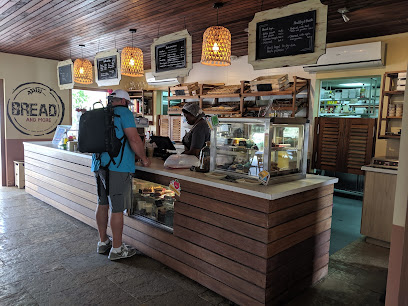
Chichi Shop Punda
Discover the vibrant essence of Curaçao at Chichi Shop Punda, your go-to souvenir store for unique gifts and local crafts.
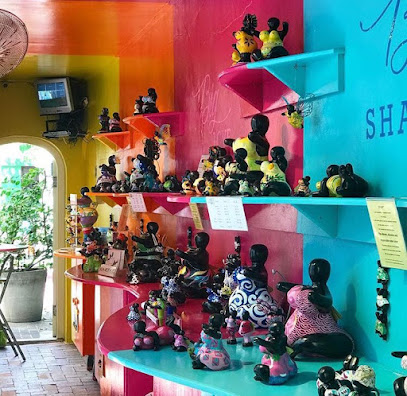
Freeport Jewelers
Explore the finest collection of jewelry at Freeport Jewelers, where elegance meets exceptional service for an unforgettable shopping experience.
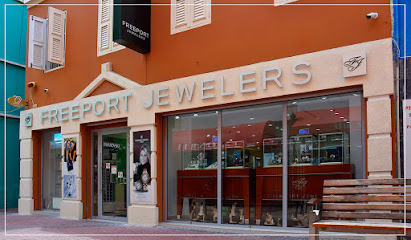
Jolly Fashion by Prakash
Explore unique clothing, jewelry, and accessories at Jolly Fashion by Prakash in Willemstad, Curaçao, your go-to fashion destination!
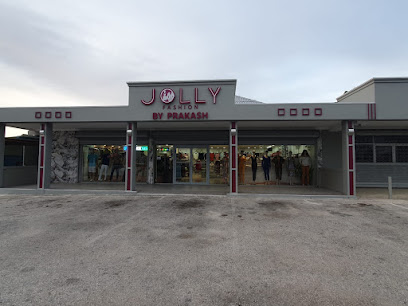
Island Treasures
Explore Island Treasures in Willemstad for authentic Curaçao souvenirs, from local art to handcrafted gifts that capture the island's spirit.
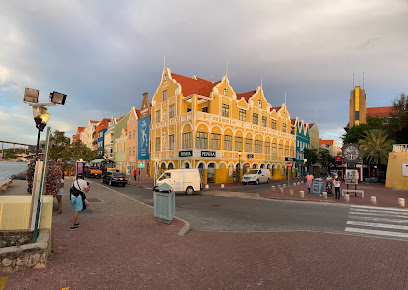
Britt Shop
Explore the vibrant Britt Shop at Curacao Hato International for unique souvenirs that capture the essence of the island's culture and creativity.
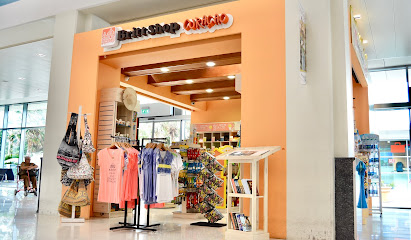
Unique point
Explore Unique Point in Willemstad for the latest in men's fashion, where style meets the vibrant culture of Curaçao.
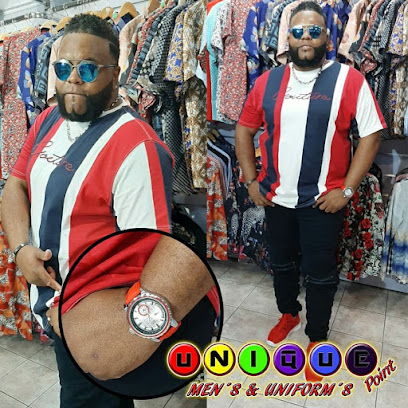
AURA FASHION
Explore AURA FASHION in Willemstad for a unique selection of stylish women's clothing that captures the essence of Curaçao's vibrant culture.
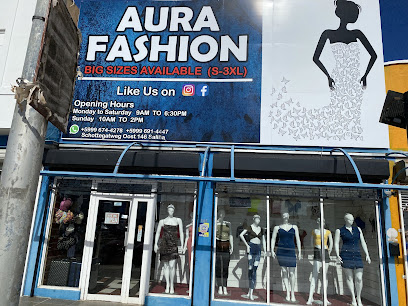
Dolce Vita Boutique
Discover unique fashion and vibrant styles at Dolce Vita Boutique in Willemstad, Curaçao - a must-visit destination for trendy travelers.

Memories Curacao
Discover unique souvenirs at Memories Curacao, where local artistry meets the vibrant spirit of the island, perfect for every traveler.
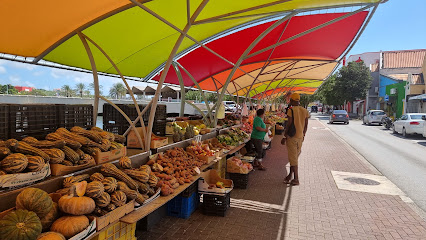
Essential bars & hidden hideouts
Playa Porto Mari
Playa Porto Mari in Curaçao: A tropical paradise with stunning beaches, vibrant marine life, and delightful local cuisine awaits you.
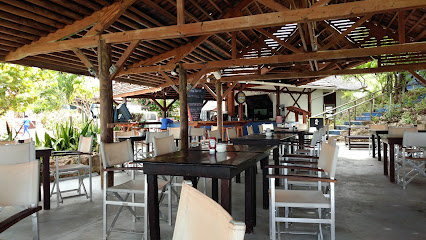
Pirate Bay Curaçao Beach Club and Restaurant
Experience the ultimate beach club atmosphere at Pirate Bay Curaçao, where delicious food meets breathtaking ocean views and lively entertainment.
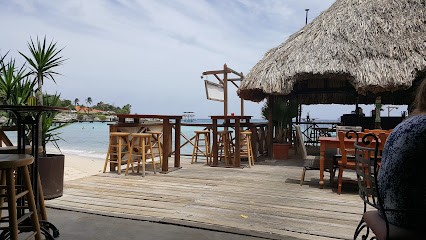
Daaibooi Beach Bar
Experience the essence of Caribbean relaxation at Daaibooi Beach Bar, where sun, sea, and scrumptious flavors await.
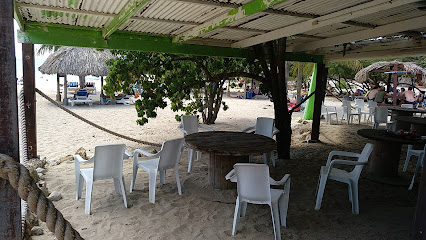
Netto Bar
Discover the vibrant nightlife at Netto Bar in Otrobanda, where creative cocktails and a friendly atmosphere await every visitor.
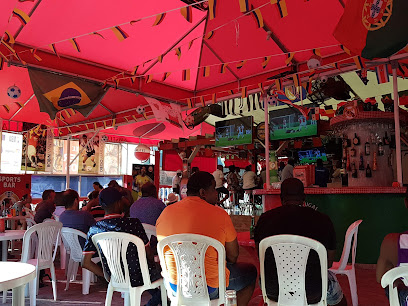
Koraal Rooftop Terrace
Discover breathtaking views and exquisite cuisine at Koraal Rooftop Terrace in Curaçao, where every meal is a celebration of flavor and ambiance.
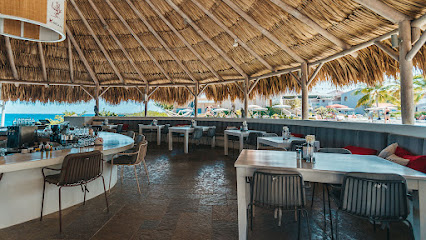
Captain's Sportsbar & Grill
Experience the ultimate sports and dining experience at Captain's Sportsbar & Grill in Willemstad, Curaçao, where excitement and flavors collide.
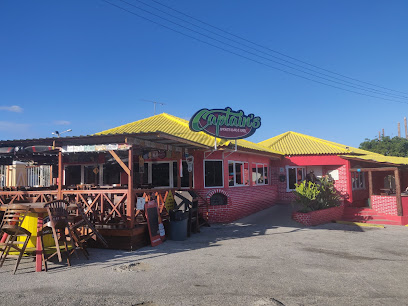
The Captain
Discover a culinary treasure at The Captain in Curaçao, where local flavors meet a vibrant atmosphere, perfect for an unforgettable dining experience.
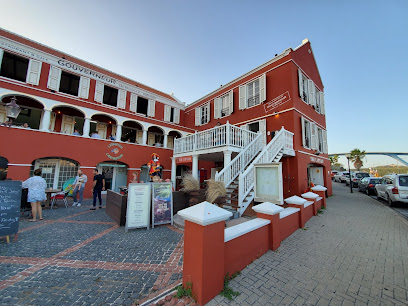
Tugboat Bar
Experience vibrant nightlife and stunning sunsets at Tugboat Bar in Willemstad, Curaçao, the perfect spot for relaxation and socializing.
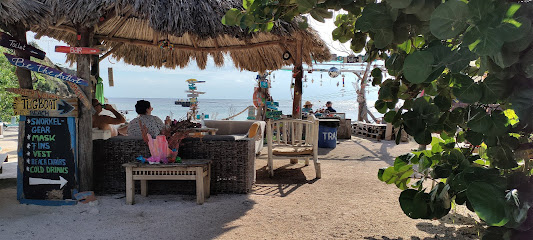
Schooner Bar
Experience the vibrant atmosphere and delicious small plates at Schooner Bar in Willemstad, Curaçao - your Caribbean getaway.
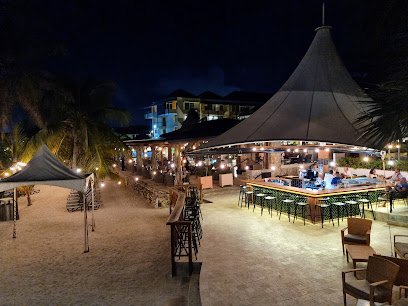
La Fogata Terrace & Sports Bar
Discover the vibrant La Fogata Terrace & Sports Bar in Willemstad, Curaçao, where delicious grilled food meets an energetic sports atmosphere.
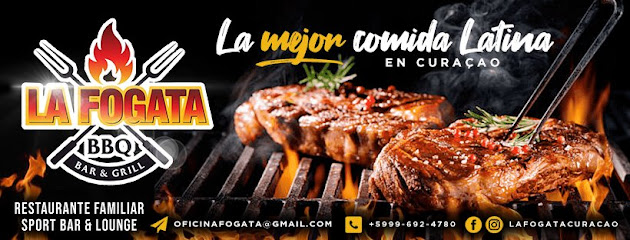
Doo-shee cocktail bar
Experience the vibrant nightlife of Willemstad at Doo-shee Cocktail Bar, where expertly crafted cocktails and a lively atmosphere await.
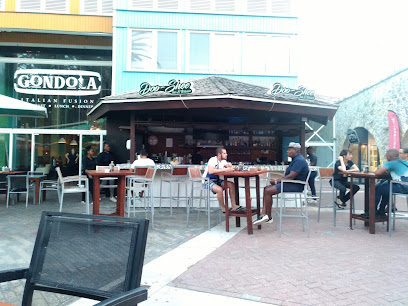
The World Best Mojito Bar
Experience the vibrant atmosphere and refreshing mojitos at The World Best Mojito Bar in the heart of Willemstad, Curaçao.
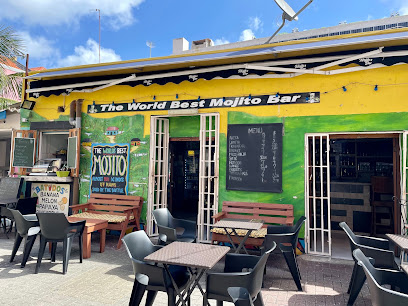
Blend Beach Bar @ Blue Bay Curaçao Golf & Beach Resort
Experience the ultimate relaxation at Blend Beach Bar, where stunning ocean views meet refreshing cocktails and a vibrant atmosphere in Curaçao.
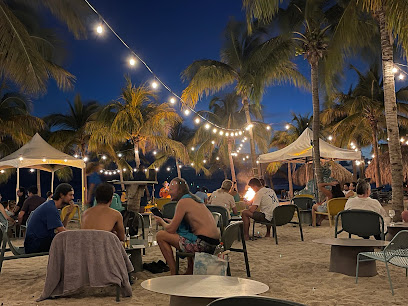
Coco Pool Bar
Discover the vibrant Coco Pool Bar in Willemstad, a tropical haven for relaxation with signature cocktails and a lively atmosphere.
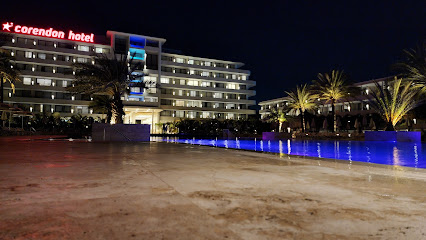
Local Phrases about Playa Porto Mari
-
- HelloBon dia
[bon dee-ah] - GoodbyeAyo
[ah-yo] - YesSi
[see] - NoNo
[noh] - Please/You're welcomePor fabor
[por fah-bor] - Thank youDanki
[dan-kee] - Excuse me/SorrySori
[soh-ree] - How are you?Kon ta bai?
[kon tah bah-ee?] - Fine. And you?Bon. I bo?
[bon. ee boh?] - Do you speak English?Bo papia ingles?
[boh pah-pee-ah een-gles?] - I don't understandMi no ta kompronde
[mee noh tah kom-pron-deh]
- HelloBon dia
-
- I'd like to see the menu, pleaseMi ke mira e menu, por fabor
[mee kay mee-rah eh menu, por fah-bor] - I don't eat meatMi no kome karni
[mee noh koh-meh kar-nee] - Cheers!Salu!
[sah-loo] - I would like to pay, pleaseMi ke paga, por fabor
[mee kay pah-gah, por fah-bor]
- I'd like to see the menu, pleaseMi ke mira e menu, por fabor
-
- Help!Yudami!
[yoo-dah-mee] - Go away!Bai for di aki!
[bah-ee for dee ah-kee] - Call the Police!Yama polis!
[yah-mah poh-lees] - Call a doctor!Yama un dokter!
[yah-mah oon dohk-ter] - I'm lostMi ta perdi
[mee tah pehr-dee] - I'm illMi ta malu
[mee tah mah-loo]
- Help!Yudami!
-
- I'd like to buy...Mi ke kumpra...
[mee kay koom-prah...] - I'm just lookingMi ta so buska
[mee tah soh boos-kah] - How much is it?Kuantu esaki ta kos?
[kwan-too eh-sah-kee tah kohs?] - That's too expensiveEsaki ta muchu karo
[eh-sah-kee tah moo-choo kar-oh] - Can you lower the price?Bo por baha e preis?
[boh por bah-hah eh preis?]
- I'd like to buy...Mi ke kumpra...
-
- What time is it?Kuantu ora ta?
[kwan-too oh-rah tah?] - It's one o'clockTa un ora
[tah oon oh-rah] - Half past (10)Mitad di dies
[mee-tahd dee dees] - MorningMarduga
[mahr-doo-gah] - AfternoonAtardi
[ah-tar-dee] - EveningAnochi
[ah-noh-chee] - YesterdayAyera
[ah-yeh-rah] - TodayAwe
[ah-weh] - TomorrowMañan
[mah-nyahn] - 1un
[oon] - 2dos
[dohs] - 3tres
[trehs] - 4kuater
[kwah-ter] - 5sinku
[seen-koo] - 6seis
[says] - 7siete
[syeh-teh] - 8ocho
[oh-choh] - 9nuebe
[nweh-beh] - 10diez
[dees]
- What time is it?Kuantu ora ta?
-
- Where's a/the...?Unda ta e...?
[oon-dah tah eh...?] - What's the address?Kiko e adres ta?
[kee-koh eh ah-dres tah?] - Can you show me (on the map)?Bo por mustra mi (riba e mapa)?
[boh por moos-trah mee (ree-bah eh mah-pah)?] - When's the next (bus)?Kuantu tempu te e siguiente (bus)?
[kwan-too tem-poo teh eh see-gwee-ehn-teh (boos)?] - A ticket (to ....)Un tiki (pa ....)
[oon tee-kee (pah ....)]
- Where's a/the...?Unda ta e...?
History of Playa Porto Mari
-
Long before European settlers arrived, the island of Curaçao was inhabited by the Arawak-speaking Caiquetio Indians. These indigenous people were skilled fishers and farmers who established settlements along the coast, including the area now known as Playa Porto Mari. Archaeological evidence such as pottery shards and tools have been found in the region, indicating a rich cultural heritage.
-
In 1499, Spanish explorers led by Alonso de Ojeda and Amerigo Vespucci became the first Europeans to set foot on Curaçao. Although the Spanish initially showed interest in the island, they soon realized it lacked precious metals and largely abandoned it. Playa Porto Mari, like many other coastal areas, remained relatively untouched during this period, serving primarily as a landing point for occasional visitors.
-
The Dutch West India Company captured Curaçao from the Spanish in 1634, turning it into an important hub for trade and commerce. The area around Playa Porto Mari became a site for salt mining, which was a valuable resource at the time. The Dutch constructed several plantations in the vicinity, utilizing enslaved African labor. Remnants of colonial infrastructure, such as old plantation houses and salt pans, can still be found near Playa Porto Mari.
-
During World War II, Curaçao played a strategic role due to its oil refineries, which supplied fuel to the Allied forces. Playa Porto Mari was used as a lookout point to monitor the coastline for enemy submarines and ships. The remnants of bunkers and other military installations from this era are still visible, serving as a poignant reminder of the island's wartime contributions.
-
In recent decades, Playa Porto Mari has transformed into a popular tourist destination known for its pristine beaches and vibrant marine life. The area has been carefully developed to preserve its natural beauty while offering amenities such as diving schools, beach bars, and walking trails. The local government and private organizations have undertaken various conservation efforts to protect the coral reefs and marine ecosystems, ensuring that Playa Porto Mari remains a sustainable destination for future generations.
Playa Porto Mari Essentials
-
Playa Porto Mari is located on the west coast of Curacao, approximately 30 kilometers from the capital, Willemstad. The easiest way to get there is by renting a car from Hato International Airport, which is around a 40-minute drive. Alternatively, you can take a taxi directly from the airport or from your hotel in Willemstad. Some hotels and resorts also offer shuttle services to Playa Porto Mari.
-
Once in Playa Porto Mari, the best way to get around is by rental car, as public transportation options are limited. There are parking facilities available at the beach. Taxis are also available but can be more expensive and less convenient than having your own vehicle. Biking and walking are options for those staying nearby, but the area is generally best navigated by car.
-
The official currency of Curacao is the Netherlands Antillean Guilder (ANG), but US dollars are widely accepted. Major credit cards are accepted at most restaurants, hotels, and tourist attractions. It is advisable to carry some cash for smaller purchases or at places where cards might not be accepted. ATMs are available in Willemstad and other major towns, but not directly at Playa Porto Mari.
-
Playa Porto Mari is generally safe for tourists, but it is important to exercise standard precautions. Avoid leaving belongings unattended on the beach and be cautious when walking around at night. Willemstad has some areas with higher crime rates, particularly Punda and Otrobanda after dark. Stick to well-lit, populated areas and avoid showing large amounts of cash or expensive items.
-
In case of an emergency, dial 911 for immediate assistance. The closest medical facility is in Willemstad, about a 40-minute drive from Playa Porto Mari. It is advisable to have travel insurance that covers medical emergencies. For minor health issues, there are pharmacies in Willemstad where you can purchase over-the-counter medications. Always carry a charged mobile phone for emergency calls.
-
Fashion: Do wear light, comfortable clothing suitable for a beach environment. Don't wear overly revealing swimwear outside of the beach area. Religion: Do respect local religious customs. Avoid loud behavior near churches. Public Transport: Do plan your trips as public transport is limited. Don't rely solely on buses to get around. Greetings: Do greet locals with a friendly 'Bon dia' (good morning) or 'Bon tardi' (good afternoon). Eating & Drinking: Do try local dishes and seafood. Don't refuse food or drink offered by locals as it is considered impolite.
-
To experience Playa Porto Mari like a local, visit during the weekdays when it is less crowded. Engage with the staff at the beach bar for recommendations on local food and drinks. Try the snorkeling trail marked with informative signs about the marine life. If you’re interested in diving, the on-site diving center offers guided tours. Don’t miss the chance to hike the nature trails surrounding the beach, which offer stunning views and opportunities to see local wildlife.
Nearby Cities to Playa Porto Mari
-
Things To Do in Barber
-
Things To Do in Sint Michiel
-
Things To Do in Julianadorp
-
Things To Do in Sabana Westpunt
-
Things To Do in Westpunt
-
Things To Do in Willemstad
-
Things To Do in San Nicolas
-
Things To Do in Savaneta
-
Things To Do in Santa Cruz
-
Things To Do in Pos Chiquito
-
Things To Do in Paradera
-
Things To Do in Sero Blanco
-
Things To Do in Tanki Leendert
-
Things To Do in Oranjestad
-
Things To Do in Noord








